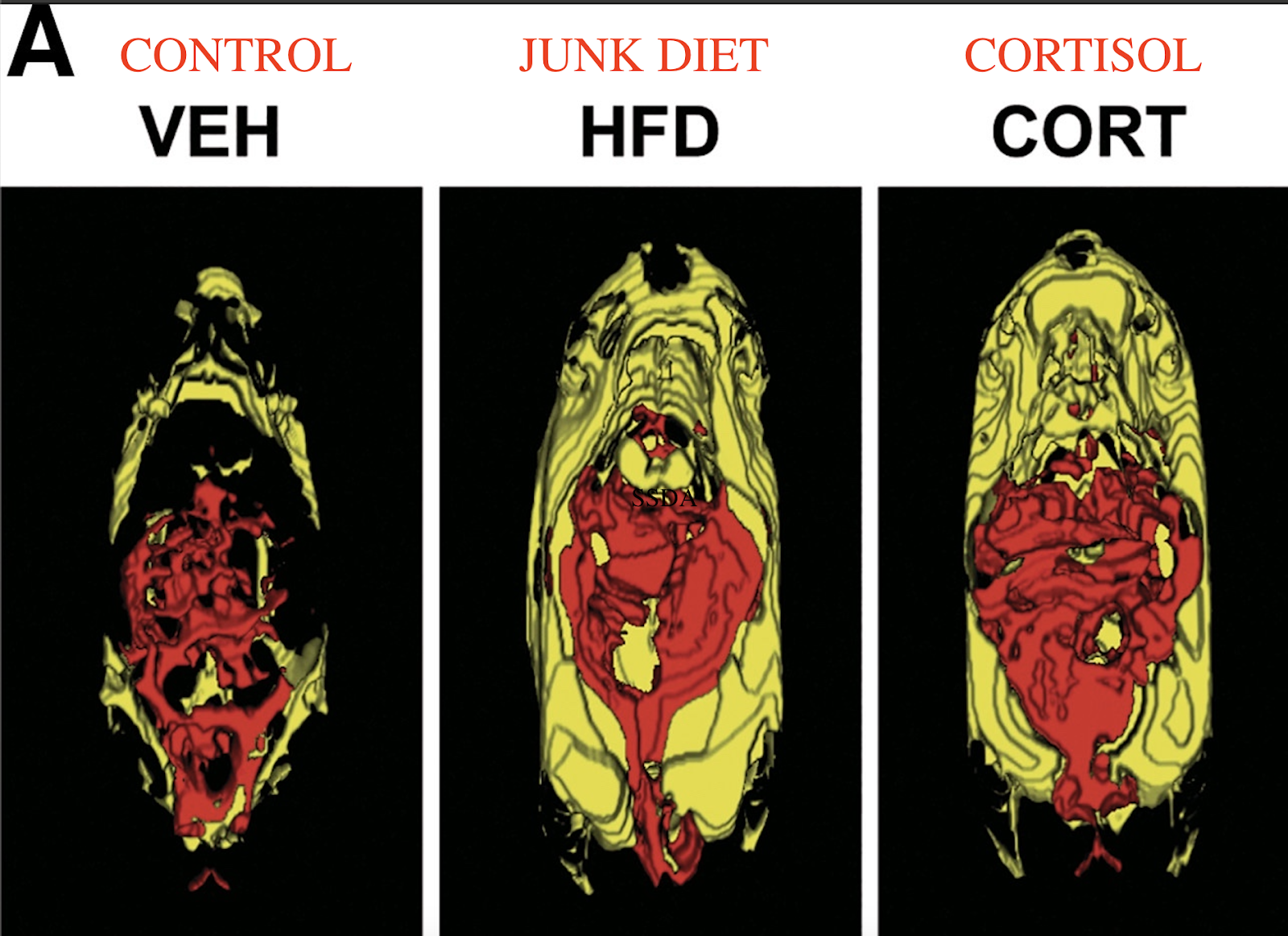
If you’ve ever popped a Tylenol or some ibuprofen for a headache or back pain, check this out…
Story-At-a-Glance
Hey, Matt Cook here, and I’ve discovered something sinister about the most common over-the-counter pain relievers…
…the ones we’re told are safe to use… the ones we give pregnant women and children…
Turns out, they may be making a man feel LESS pleasure in all areas of his life.
electric erection
And I’ll show you an alternative natural pain treatment that does the opposite…
Unsubscribe | Report as spam | Change email preferences
—-Important Message—-
Is cortisol worse than junk food?
I’ve come across an eye-opening study about cortisol.
Picture this: There are two groups of animals.
One group chows down on a diet full of junk food, while the other group gets a dose of cortisol (corticosterone).
Both groups pack on fat equally, and they even have similar amounts of dangerous fat around their organs.
But here’s the kicker: The cortisol group has an even GREATER ability to create fat out of thin air!
So, they just get fatter and fatter as shown in the picture.
Plus, their inflammation levels shoot through the roof, even HIGHER than the junk food group.
So what does this mean for men?
It means that chronic stress could be wrecking men’s health even more than the worst diet imaginable.
So, reducing cortisol is key to high T, great rockiness, low fat mass and higher muscle mass.
And that’s why I’m here to personally guide men through my Cortisol Transformation.
It’s not some quick fix or empty promise. It’s a real solution that gets to the root of the problem naturally.
With the Cortisol Transformation, you’ll have the tools and support you need to finally break free from the grip of cortisol and achieve great overall health.
So don’t wait another minute.
———-
Is this common pain reliever making you feel less pleasure?
Empathy is the ability to experience what someone else is going through – to be able to feel it, rather than just intellectualize it.
The instinctive responses we have to people which are triggered by empathy are a part of positive human behavior.
And when we display empathic behaviors to others, we reap the rewards later.
Displaying a lack of empathy triggers revulsion and other negative feelings towards us, and this will translate into unwanted actions later.
Empathy is important – but many people are regularly taking painkilling treatments which destroy empathy.
It seems that the dampening of our own pain sensations limits our ability to understand others’ pain.
The human research was carried out at the National Center for Complementary and Integrative Health, National Institutes of Health in Bethesda. This paper was published in Social Cognitive and Affective Neuroscience.
There is a theory in psychology called “simulation theory of empathy.”
This theory proposes that we understand the behavior of others by placing ourselves in their shoes.
We feel what they feel, and imagine what we would do in their position.
“Simulation theories of empathy hypothesize that empathizing with others’ pain shares some common psychological computations with the processing of one’s own pain.”
The idea has been reinforced by experiments which show that people watching somebody go through an experience…
…have similar brain activation to those actually going through the experience.
This is related to the well-known theory of mirror neurons.
“There is neuroimaging evidence of an overlap of brain activation during the experience of physical pain and empathy for others’ pain.”
It makes sense in the context of these theories that the dampening of an individual’s pain would also decrease empathy.
So these researchers decided to test the effects of the most common painkiller (acetaminophen) on human empathy.
“Here, we extend the functional overlap perspective to the neurochemical level and test whether acetaminophen can reduce empathy for another’s pain.”
The researchers carried out a number of different experiments.
One involved reading about painful experiences, and another experiment involved watching people being ostracized from the group.
The final experiment involved imagining somebody being exposed to extremely loud, painful noise.
“In double-blind placebo-controlled experiments, participants rated perceived pain, personal distress and empathic concern in response to reading scenarios about another’s physical or social pain, witnessing ostracism in the lab, or visualizing another study participant receiving painful noise blasts.”
The experiments showed that acetaminophen certainly does reduce empathy.
It specifically reduces empathy in relation to painful physical experiences.
“As hypothesized, acetaminophen reduced empathy in response to others’ pain.”
The researchers believe that the reduction in this type of empathy is due to the reduction in the experience of pain.
It seems that if we can’t feel it fully we can’t imagine others feeling it fully either.
“Acetaminophen also reduced the unpleasantness of noise blasts delivered to the participant, which mediated acetaminophen’s effects on empathy.”
Empathy is a huge factor in healthy human behavior and so these results are quite startling.
There are other studies indicating the same thing with acetaminophen and other painkillers like ibuprofen.
“Because empathy regulates prosocial and antisocial behavior, these “treatment”-induced reductions in empathy raise concerns about the broader social side effects of acetaminophen…”
Perhaps most worryingly, these empathy-killing treatments are being taken by almost one in four adults every week.
These treatments are having a massive effect on the social lives of everyone – and almost everyone is completely unaware of it.
“Acetaminophen… which is taken by almost a quarter of adults in the United States each week.”
You should always consult your healthcare practitioner for guidance on medical diagnosis and treatment.
—-Important Message from Dr. Ari Magill MD—-
How I recovered from a nervous breakdown
Hey Dr. Magill here, and I’ve got a story I just have to share with you about one of my patients, Jack.
When he first came to see me, he was a mess.
Every morning, he’d wake up feeling like his heart was racing a million miles an hour, and his head was filled with nothing but worries.
Stress followed him around like a dark cloud, making even the easiest things feel like a huge challenge.
But then, I tell Jack about my mood booster that I’ve been working on for months.
At first, he isn’t sure about it, but he decides to give it a try.
As the days go by, Jack starts to change.
He walks into work with his head held high and a smile on his face.
He tackles tough tasks like they are nothing.
And you know what? His new-found confidence gets him a date with a gorgeous woman from his office, too!
It’s like Jack has walked into a magical world where stress and worries just melt away, and in their place, he finds confidence and happiness.
But, how exactly has Jack managed to stop being this “worry-machine” he’s always been?
———-





